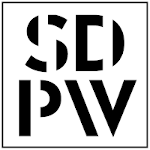- Supervisor:
- Ph.D., D.Sc. Mariola Koszytkowska-Stawińska
- Faculty:
- Faculty of Chemistry
- E-mail:
- mariola.koszytkowska@pw.edu.pl
- Contact:
- Gmach Chemii, pok. 230, konsultacje poniedziałki 13.30 - 15.30 (office hours Mondays 13.30 - 15.30)
- Base of Knowledge WUT :
- Limit doktorantów:
- Subwencja: 0/5 Spoza subwencji: 1/3
Wykaz obszarów badawczych:
| # | Research Area | Dziedzina naukowa |
|---|---|---|
| 1 |
Design and synthesis of organic compounds - receptors of the selected ions, ie. cations or anions of interest from the environmental protection-point of view. So for this purpose, the newly synthesized derivatives will bear analyte-binding structural motifs (amide group, azole moiety - 1,2,3-triazle, sumanene moiety). Additionally, the receptor molecule will include structural motifs responsible for aggregation-induced emission enhancement effect of these compounds. The prepared compounds will be characterized in terms of their photophysical properties by spectroscopic methods (absorption spectroscopy, emission spectroscopy, nuclear magnetic resonance).
Auxiliary supervisor: dr inż. Artur Kasprzak (KChO, WCh, PW)
|
Chemical-Sciences |
| 2 |
Design and synthesis of novel organic compounds, potential anticancer agents with special regard to mutual prodrugs. A mutual prodrug is the association in a unique molecule of two, usually synergistic, drugs attached to
each other, one drug being the carrier for the other and vice versa. (C. G. Wermuth, C. R. Ganellin, P. Lindberg and L. A. Mitscher w Glossary of Terms Used in Medicinal Chemistry. IUPAC Recommendations 1998. https://doi.org/10.1515/iupac.70.0050). The synthesized prodrugs will be examined in terms of their biological activity. Next, they will be employed as the active agents of novel drug delivery systems based on organic macromolecules. Biological studies on the obtained prodrugs and drug delivery systems will be examined in cooperation with prestigious scientific teams.
|
Chemical-Sciences |
